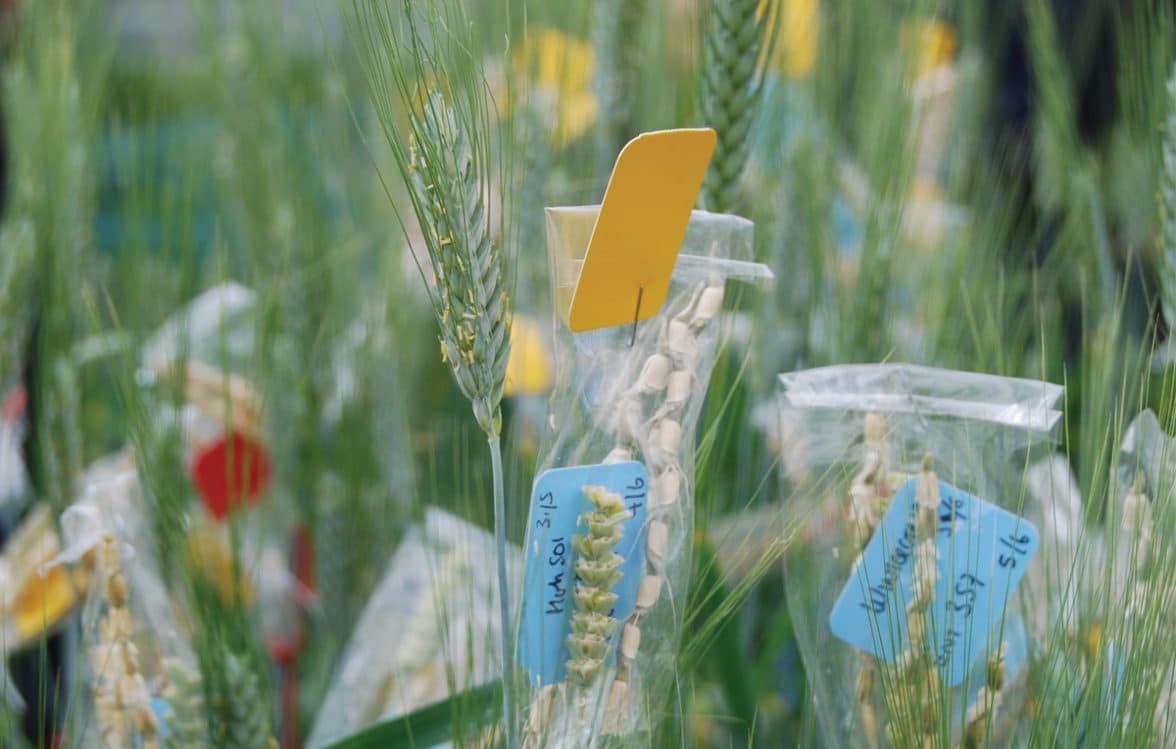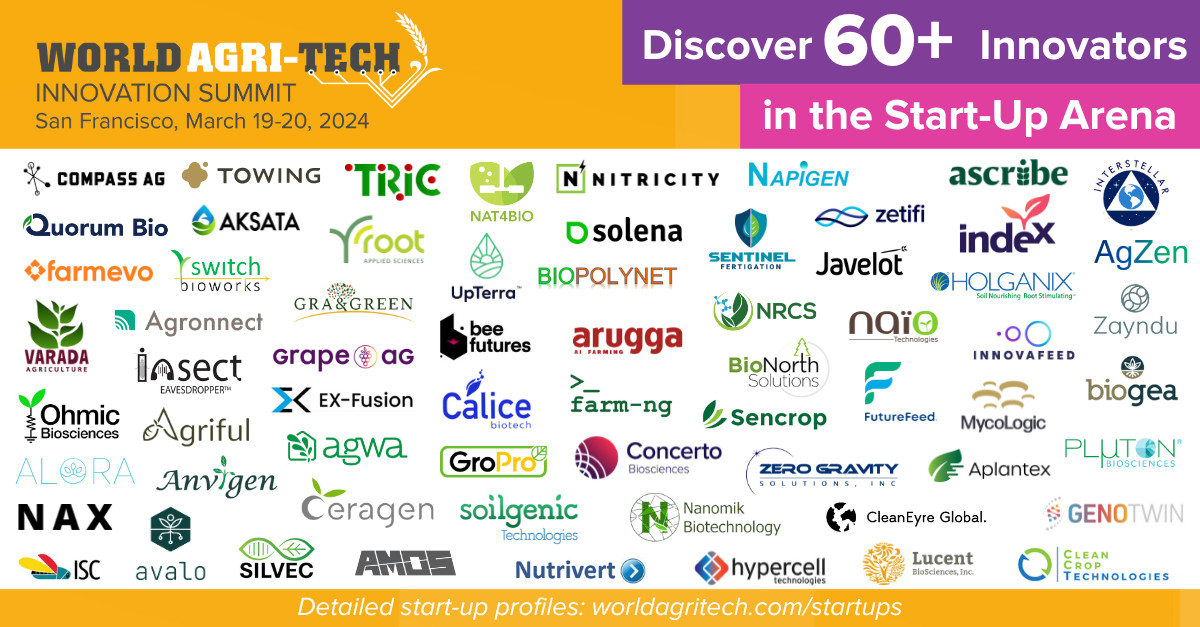The policy environment for the UK agritech sector is more positive today than at any time in recent decades, driven by increased recognition of the strategic significance of agricultural innovation, both in addressing the global food security challenge and as a powerful driver for economic growth. This provides an important platform to highlight the positive contribution of plant breeding and the ongoing challenges the industry faces.
The food riots and commodity price spikes of 2008 sparked a renewed policy focus on global food security, and highlighted the precarious balance between production and consumption in the face of rapid population growth, climate change, and declining land, water and energy resources.
In the UK, this resulted in a series of high-level policy statements, inquiries and reports on food security, all of which underlined the need to support productive, hi-tech agriculture and the scientific innovation required to meet the food demands of a burgeoning world population.
Perhaps the most comprehensive analysis of the pressures building on the global food supply system was the – UK government’s Global Food and Farming Futures Foresight report in 2011, led by then UK chief scientist, Professor Sir John Beddington.
The Foresight report concluded that while efforts to reduce waste, change diets and improve distribution systems all had a role to play, the only realistic prospect of providing enough food for a world population set to exceed nine billion by 2050 was by increasing the output and efficiency of agricultural production. It emphasised the critical role of scientific and technological innovation in delivering the sustainable intensification of agriculture—producing more, impacting less and consuming fewer resources.
Foresight envisaged a central role for plant breeding in addressing the food security challenge, highlighting the potential to apply both new and existing technologies to increase yields and improve nutrition, to keep pace with the emergence of new pests and diseases, and to develop crops more resilient to increased drought, flooding and salinity arising from climate change.
After decades of chronic underinvestment in productive agricultural research in the UK, the Foresight report also called for increased public sector investment in applied agricultural research to ensure the potential benefits of a rapidly advancing knowledge base in biological, genetic and data science could be transferred into farm-level application and impact.
At the time, this final recommendation aligned perfectly with UK plant breeders’ high-profile calls for research investment to reconnect the R&D pipeline and ensure advances in basic plant science were translated into crop-based innovations of relevance to commercial plant breeders in the form of adapted germplasm, traits, markers, and breeding tools.
The UK government’s policy response to the issues raised in the Foresight report—the UK Strategy for Agricultural Technologies (Agri-Tech Strategy)—was announced in July 2013. This represents the strongest recognition by any UK government in more than 30 years of the strategic importance of supporting a productive, resilient and competitive farming sector, and has signalled a renewed R&D policy focus on building closer links between the research base and industry, and refocusing investment on applied research and its translation onto the farm.
On top of the £450 m currently spent each year on agricultural R&D, the Agri-Tech Strategy includes additional investment of £160 m over five years, of which £90 m is supporting a new network of Centres for Agricultural Innovation, in areas such as agri-informatics, precision farming, crop protection and livestock production. The remaining £70 m is allocated to a Catalyst Fund to help businesses improve the translation of promising new research into commercial application.
A defining feature of the Agri-Tech Strategy is a stronger and more cohesive role for industry through strong representation on the leadership council overseeing the strategy and its implementation, in forging new research partnerships and collaborations with the research base, and in seeking greater alignment between industry R&D funding and public sector investment.
A number of UK plant breeding companies are already involved in research funded through the Agri-Tech Strategy, including innovative projects to identify new sources of durable disease resistance, enhance grain processing quality, and to develop a new phenomics platform to improve breeding, agronomy, and variety selection.
Encouragingly, the Agri-Tech Strategy’s central objective to accelerate the translation of research into practice and establish closer links between the public and private sector is mirrored in other R&D programmes of relevance to the plant breeding industry. The Biotechnology and Biological Sciences Research Council’s (BBSRC) Crop Improvement Research Club and the Department for Environment, Food and Rural Affairs-sponsored Genetic Information Networks (covering wheat, pulses, oilseed rape and biomass for energy) provide a coherent framework for more effective coordination between the science base and commercial plant breeders.
At a more strategic level, direct industry involvement in relevant programmes of underpinning plant science, pre-breeding and genomics research within UK research institutes and universities—such as the BBSRC-funded Wheat Improvement Strategic Programme Consortium—offers scope to identify and develop valuable new traits, markers, and breeding tools.
In terms of impact, innovation in plant breeding has delivered major benefits across the UK’s £100 billion food supply chain, from farm-level improvements in crop yields and input use efficiency through advances in end-use quality to meet the processing needs of the food industry and the healthy eating demands of consumers.
Two independent studies commissioned by the British Society of Plant Breeders have helped quantify the positive contribution of UK plant breeding.
The first, a 2009 study by UK’s National Institute of Agricultural Botany, highlighted the increasing significance of genetic improvement as the primary source of yield gain in the UK’s major arable crops. Statistical analysis of UK trial data over the past 60 years found that while cereal yield increases prior to the early 1980s were due to a combination of factors, such as increased mechanisation and more widespread use of fertilisers and pesticides, yield gains in UK wheat and barley over the past 25 years have been almost exclusively due to the genetic improvements delivered by plant breeders.
The second study, by economists DTZ in 2010, found in just three crops (wheat, barley and forage maize), the benefits of plant breeding to the UK economy are in excess of £1 billion per year—delivered through increased yields and production efficiency on-farm, as well as improvements in crop quality and seasonality, leading to food processing efficiencies and import substitution. The report attributed a further £1.3 billion in safeguarded economic activity to the development of improved varieties. Overall, the study concluded that every £1 invested in plant breeding through seed royalties adds £40 to the wider UK economy—a 40-fold return on investment, which compares favourably with any research-based industrial sector.
UK breeding innovation continues apace, with major advances in quality wheat yields, healthier varieties of barley, oats, beans and oilseed rape, improved plant architecture in field peas, the development of new herbicide tolerance and hybrid breeding systems, and new sources of pest and disease resistance introduced into UK varieties.
In contrast to the political and regulatory challenges facing agri-science innovation at the EU level—in areas such as GMOs, pesticides and novel breeding techniques—the UK policy environment has seen resurgent interest in modern science-based agriculture.
Among UK politicians, opinion formers and research funders, there is now more explicit recognition of commercial plant breeding as a key factor in addressing the historic challenge of sustainable intensification in agriculture, and a more tangible policy response for the need to bridge the gap between basic plant science research and its practical application.
Dr Penny Maplestone is chief executive of the British Society of Plant Breeders.













